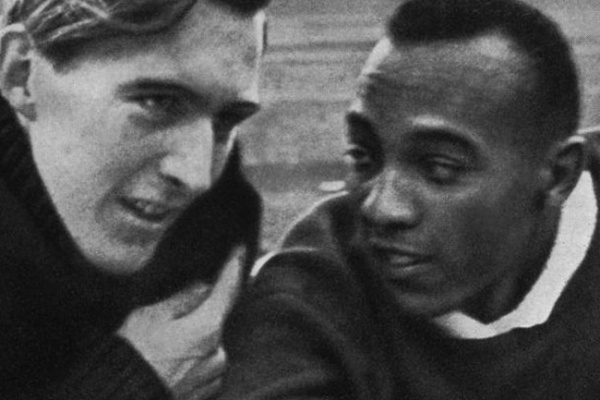When African-American athlete Jesse Owens arrived at the 1936 Olympic Games, he was under immense pressure. At 22, Owens had broken world records even before making his first Olympic appearance in Germany and the world was eager to catch a glimpse of him.
The atmosphere Owens was competing in was also tough and intimidating, to say the least. The 1936 Olympic Games were part of Adolf Hiltler’s grand plan to prove Aryan superiority and African-American’s were not high on his priority list.
Owens was called racial epithets and subjected to other forms of mistreatment but then again, it was nothing worse than what he was already subjected to back home in America.
His staggering tally of four medals at the 1936 Games was a fitting response to Hilter and shattered his idea of using the event as propaganda for the Nazi regime.
While Owens’ feat was unique, he might have lost one of his gold medals had it not been for the advice from an unlikely ally – German long jumper Luz Long.
Long, who later became a German soldier in the second World War, was tall, blond and blue-eyed – the perfect Aryan attributes according to the Nazi party but it was his friendship with Owens that became a major talking point at the Olympic Games.
Owens clinched his four Olympic medals in the span of three days. He won his races in 100m and 200m comfortably before sealing his fourth gold in the 4x100m relay for his country with a world record.
However, before eventually clinching his medal in the long jump event, Owens was struggling despite being a world-record holder in that discipline. He needed a distance of 23-and-a-half-feet to qualify for the final.
On his first attempt, Owens made a practice run in his tracksuit and landed into the pit, failing to realise that judges had already raised their flags to indicate the start of the competition. This was the first of his failed attempts.
Discouraged, Owens fouled his next attempt too, leaving him with only one final chance to qualify for the final. It was at this crucial juncture that Long walked up to the American.
In what was a fine display of sportsmanship in front of the Berlin crowd, the German suggested Owens change his mark and take off well before the foul line in order to avoid fouling the last attempt.
Heeding Long’s advice, Owens sprinted on his final try and leaped into the air a foot before the foul line. The American jumped a distance of 25 feet on his final try to qualify for the final, alongside Long.
As it turned out, Owens bagged the gold, setting a new Olympic record (8.06m) while Long grabbed silver (7.87m). The crowd in Berlin, including Hitler, would have been disappointed by what they saw, but Long wasn’t. The German was the first to congratulate Owens and later walked around the stadium, arm-in-arm with Ovens. The duo even posed together for pictures.
It was a classy act of sportsmanship that stayed with Owens for the rest of his life.
“It took a lot of courage for him to befriend me. You can melt down all the medals and cups I have and they wouldn’t be a plating on the 24-karat friendship I felt for Luz Long at that moment. Hitler must have gone crazy watching us embrace,” the American had said.
Source: https://scroll.in/field/967461/a-friendship-that-triumphed-over-racism-luz-long-jesse-owens-and-a-lesson-for-humanity
"I attended your story telling course some time back. And I've enjoyed keeping up my knowledge with your blog. You may not have realised however, that the Whole of Government is implementing Internet Seperation. Hence I'm not able to access the links to read your articles. Could I suggest including a QR code in your emails so that I can use my mobile to scan it and gain immediate access to the article? It would be most helpful"










